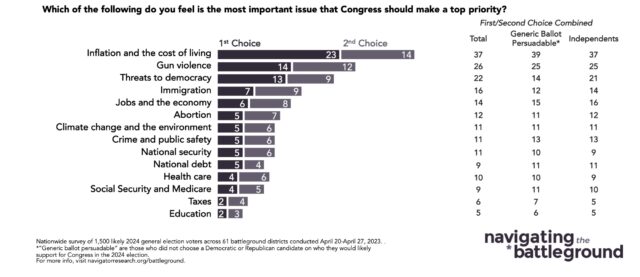Methodology

Key Takeaways
- Most think Republicans are prioritizing the wrong things. Since taking power, over half of battleground voters think Republicans are prioritizing the wrong things (53%) and that they focused on non-economic issues (55%) compared to economic issues (29%).
- However, voters still think the economy is a bigger priority for Republicans than Democrats. Those in the battleground give Republicans a 15-point margin on this measure, though their advantage shrinks to just 3 points when it’s framed as making the economy work for working people.
- There is slightly more concern today about Democrats spending too much and raising taxes (49%) than Republicans’ economic policies (45%). Voters are also slightly more concerned about Democrats’ spending (48%) than Republicans siding with corporations and the wealthy (45%).
- Voters are mixed on who they blame for inflation. Battleground voters split nearly evenly between blaming corporations raising prices (49%) or government spending (46%) for rising consumer prices.
Inflation and the Cost of Living is the Top Issue for Voters
Inflation is selected as one of the top two priorities for Congress to focus on by double-digit margins over all other issues among all in the battleground, those who are persuadable on the House generic ballot*, and independents.
A Majority of Voters Believe Republicans Have Prioritized the Wrong Things Since Taking Control of Congress
Independents believe they are prioritizing the wrong things by 25 points.
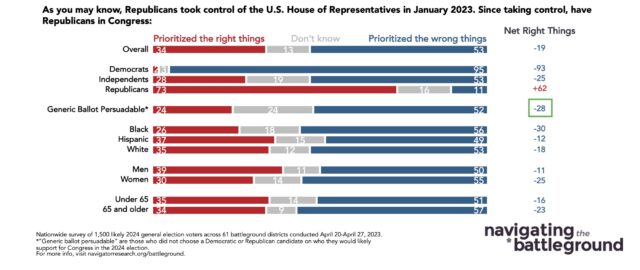
Over Half of Battleground Voters Believe Republicans in Congress Have Been Focused More on Non-Economic Issues
While most independents think Republicans have been more focused on non-economic issues (52%), an additional 21% say they don’t know whether they are more focused on economic issues or non-economic issues.
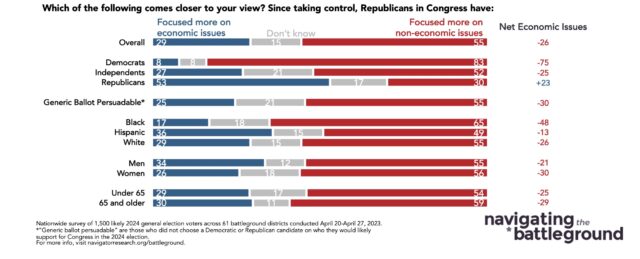
Republicans Seen As Prioritizing “The Economy,” But Voters Split on Who Prioritizes “An Economy That Works for Working People”
Independents, Hispanic constituents, and women are subgroups that demonstrate the biggest differences between who prioritizes ”the economy” generally compared to “an economy that works for working people” specifically.
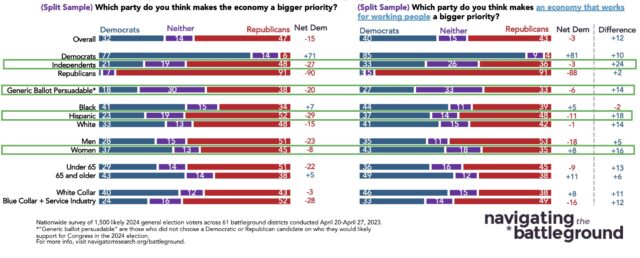
Battleground Voters Are Narrowly More Concerned About Democratic Spending Than Republican Policies
Among Black voters and those over the age of 65, they are more concerned about Republicans cutting Medicare and Social Security than them siding with corporations.
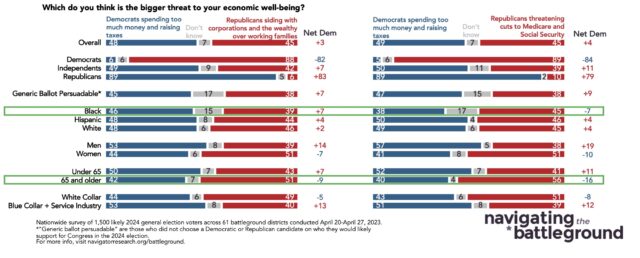
Despite Concerns About Democratic Spending, a Plurality of Believe Corporate Price Gouging is a Bigger Driver of Inflation
Independents are roughly split on blame for inflation being government policies or corporations raising prices.
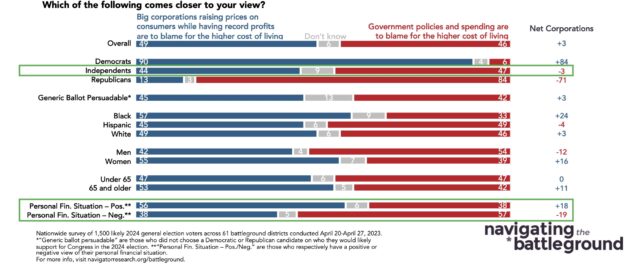
Republicans Are More Trusted on Macro-Economic Issues; Democrats Have More Trust on Voters’ Personal Economies
Among those persuadable on the generic ballot, Democrats are trusted more by double-digits on making corporations and the wealthy pay their fair share, protecting Social Security and Medicare, making drug costs more affordable, and improving wages.
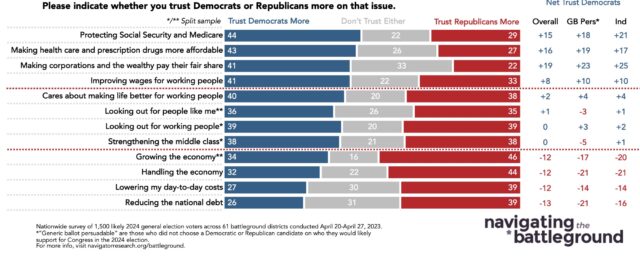
Those Not Trusting Either Party on Economic Issues Skew Independent, Younger, and Are Unfavorable Toward Both Parties
A majority of voters persuadable on the generic ballot*, as well as two in five independents, don’t trust either party to look out for people like them or lower their costs.
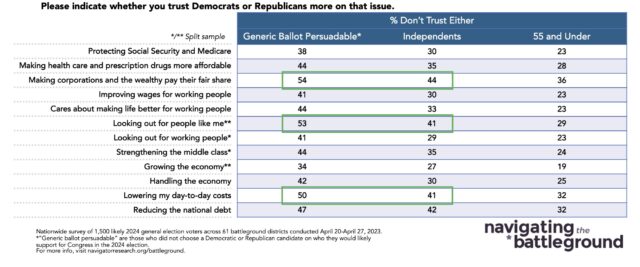
Appendix: Congressional Districts Included In Sample
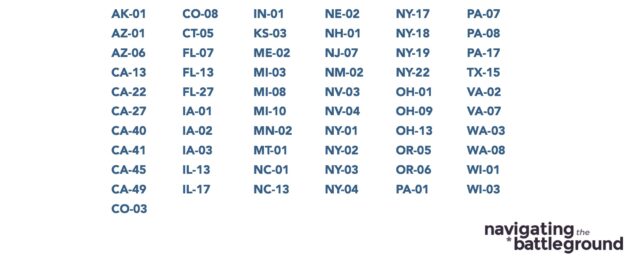
About the Study
Impact Research conducted public opinion surveys among a sample of 1,500 likely 2024 general election voters from April 20-April 27, 2023. The survey was conducted by a mix of text-to-web (74 percent) and an opt-in, online panel (26 percent). Respondents were verified against a voter file and special care was taken to ensure the demographic composition of our sample matched that of the 61 congressional districts included in the sample across a variety of demographic variables. The margin of error for the full sample at the 95 percent level of confidence is +/- 2.5 percentage points. The margin for error for subgroups varies and is higher.

